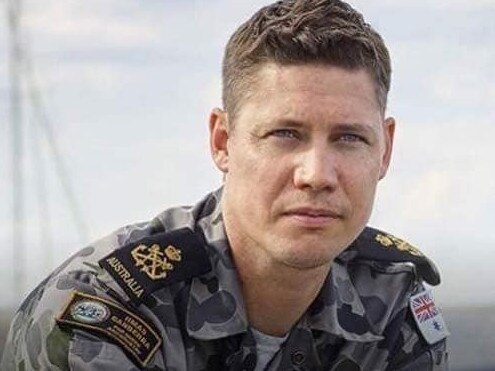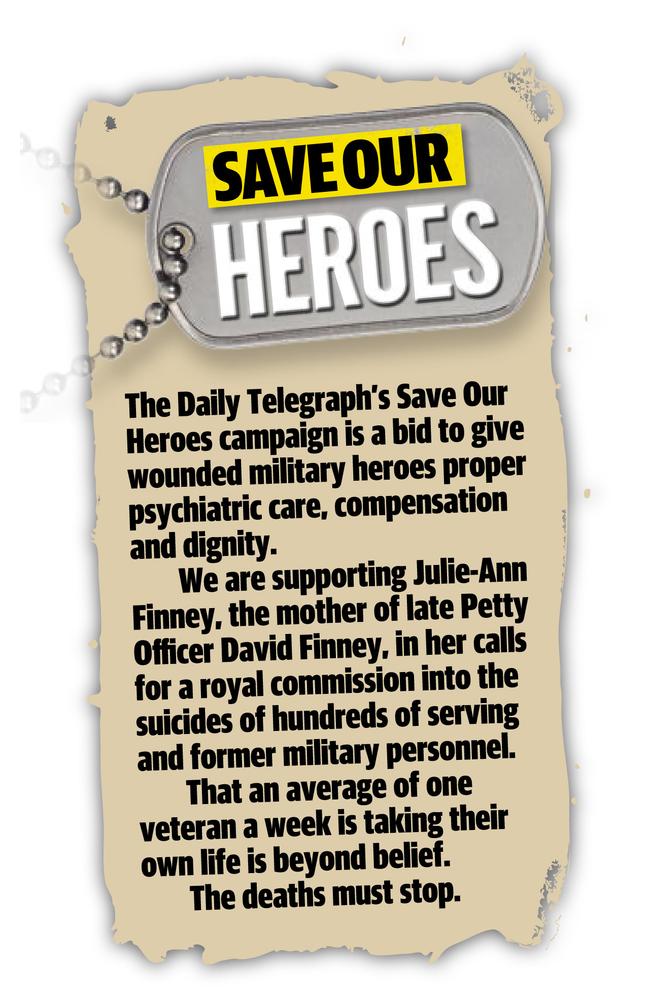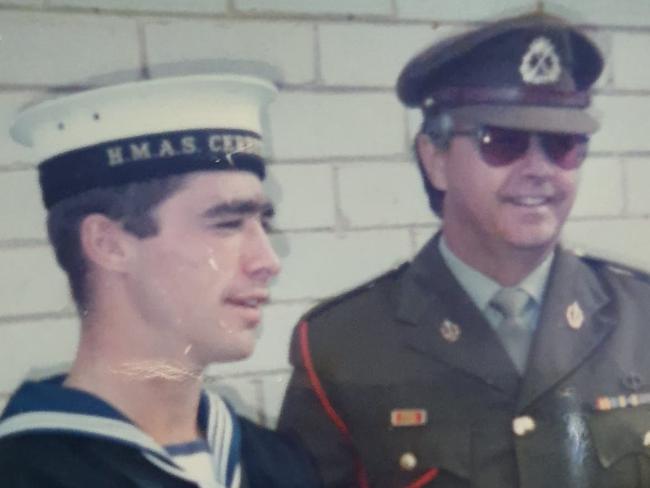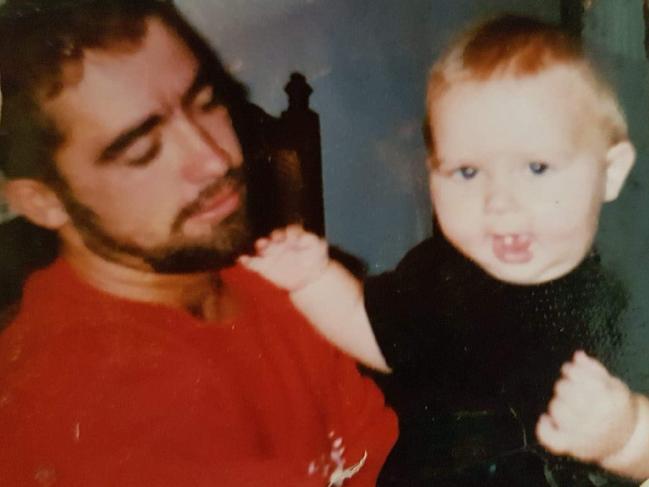Government spends millions to fight stressed veterans in court
As one veteran a week takes their own life, the Department of Veterans’ Affairs spends millions fighting servicemen and women in court to deny them compensation for injuries received while they served their country. PLUS one woman tells her heartbreaking story of losing her husband and her son.
- Grieving mum demands royal commission into veterans’ suicides
- Government agency’s cut-price care
- Prime Minister demands briefings on ’hidden epidemic’
The Department of Veterans’ Affairs is still spending millions of dollars to unleash medico-legal firms on stressed veterans — four years after the practice was criticised in parliament.
It has already spent more than $1 million this year alone on legal firm Moray Agnew, which has a track record of employing top barristers to take on struggling unrepresented veterans.

“We have been complaining about this for years,” Vietnam Veterans Federation spokesman Graham Walker said.
The DVA quietly stated in its last annual report it is reviewing the use of adversarial “medico-legal firms for compensation claims assessment” against veterans who are often two years into battling for government help.
MORE NEWS
Ponga bombshell: Wallabies plan to poach NRL star
Reality TV star arrested in inner-city drug bust
Drunk, texting driver who hit family to be sentenced
“The DVA’s use of medico-legal people from the big end of town has put veterans under stress,” Mr Walker said. “Any kind of stress puts veterans at an increased risk.”
The issue was highlighted in submissions to change the Veterans’ Affairs legislation four years ago, which revealed the DVA had spent $6.2 million on private sector lawyers to defeat veterans’ claims.
It gave the example of an Administrative Appeals Tribunal matter, where the DVA engaged Moray Agnew for the hearing and its lead-up.
“Moray Agnew used a barrister with over 20 years’ experience, with the DVA lawyers sitting opposite him to manage the case,” it said.
“Mr Jensen (the veteran) sat there on his own and did the best he could to argue technical points of law and pleaded his case for income support as he no longer could work due to his injury,” it said.
Official tender documents show the DVA has spent almost $6 million on legal advice from Moray Agnew alone since 2017.

The Daily Telegraph’s Save Our Heroes campaign has backed calls from the mother of navy officer David Finney for a royal commission into military suicide, after he killed himself when his pleas for help to the DVA went unheeded.
Julie-Ann Finney said: “The DVA has been saying it will review things for years, but it is not enough. We need a royal commission.
“My son was fighting to get two of his conditions recognised but he never got there.
“He had to keep repeating his story to different doctors and psychologists, and every time it triggered his PTSD again.”
Dr Roderick Bain, Ex-Service Organisation adviser, backed the call for a royal commission because “it will certainly raise awareness of what is going on”.
He said the use of medico-legal advisers “just seems to be a hideous way of treating veterans”.
“These are people who have put their lives on the line for their country.”
LIKE FATHER LIKE SON IN THEIR HURT
Steven Best knew the toll constant battling with Defence had taken on his father, a Vietnam veteran.

So when the young Royal Australian Navy sailor, newly married with a three-year-old son, suffered depression, he felt he had nowhere to turn.
Steven took his life in Cairns in 1993, and his mother Janine Best is frustrated that very little has changed.
“When I used to call Steven, he used to say ‘everything will be fine’ which clearly meant something was going on,” Mrs Best said.
She said her husband Brian, Steven’s father, had been constantly rejected by Veterans Affairs from accessing his pension.
Instead, the family were forced to sell their home and face four tribunals before Mr Best was classified as “permanently impaired” and could receive an income.

“We lost our house because the DVA didn’t give what was due to my husband, and when we sold our house that we had built, Brian had a breakdown as a result.
“It’s a long and soul-destroying process, ” Mrs Best said.
“It also made Brian feel worthless when applying for the pension. Had we gotten the TPI (totally and permanently incapacitated) status earlier we may have been able to keep the house.”
Mrs Bird said it “breaks her heart” to know that nothing has changed.


